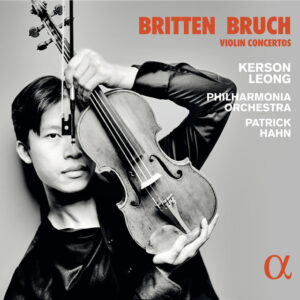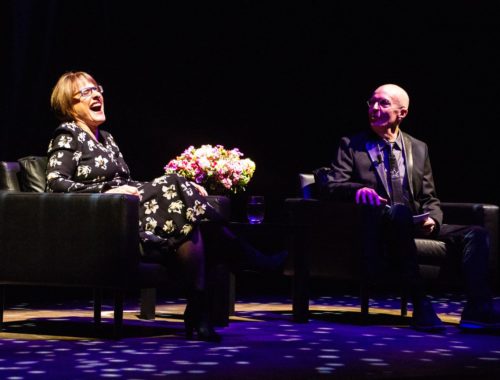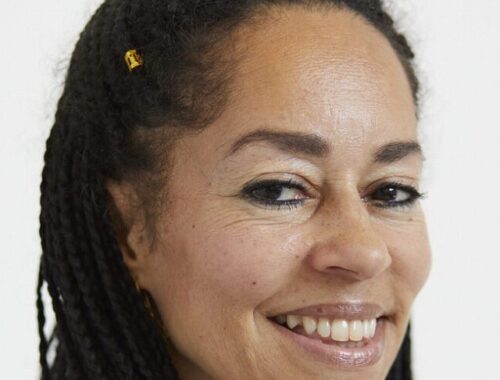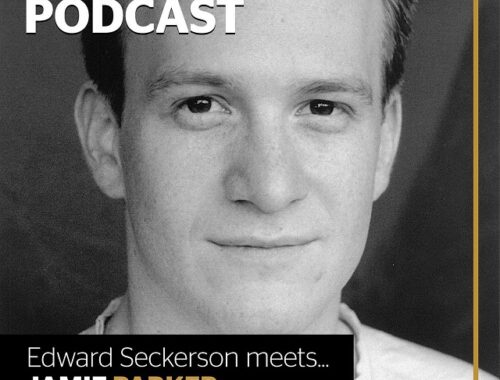GRAMOPHONE Review: Britten & Bruch Violin Concertos – Kerson Leong, Philharmonia Orchestra/Hahn
 Kerson Leong’s splendid account of the Bruch comes hot on the heals of Ryan Goosby’s no less committed reading with Yannick Nézet-Séguin and the Philadelphia Orchestra. But there are notable differences in tone which might loosely be summed up by saying that Leong’s take on the piece is more outgoing in expression.
Kerson Leong’s splendid account of the Bruch comes hot on the heals of Ryan Goosby’s no less committed reading with Yannick Nézet-Séguin and the Philadelphia Orchestra. But there are notable differences in tone which might loosely be summed up by saying that Leong’s take on the piece is more outgoing in expression.
Leong’s generosity of phrase and tone, for instance, comes unashamedly from the chest in the songful reaches of the slow movement and in the finale where the big tune bears down on the G string he really tugs at our emotions. Goosby is perhaps more restrained, more patrician, for such a young man. Both are special. Both make something affectingly inward of the closing pages of the slow movement putting to rest thoughts of a certain Alpine Symphony whose summit unapologetically borrows Bruch’s noble theme and projects it majestically large.
The bonus addition here of Bruch’s little heard but substantial tribute to Joseph Joachim In Memoriam which is as turbulent as it is reflective, as befitting the legendary violinist’s fighting spirit, and gives Leong further opportunity to sing from the heart. My thoughts occasionally turned to Elgar and the more than a hint of nobilmente that it proffers.
But it is the coupling of the Britten Violin Concerto (gratifyingly becoming more and more core repertoire these days) which, like Goosby’s Florence Price, sets this disc apart. The inspiration here was another violinist, Antonio Brosa, but more self-evidently, through the Spanish inflections in its material, it’s a meditation on that most divisive of civil wars – something which clearly distressed and exercised Britten, the pacifist. This is the composer at his most elegiac and unsettled (is it major or minor?) and Leong is clearly at one with its inner tussles – but also with all the extraordinary sparks of originality which make it unmistakably Britten: like the powerful coda of the first movement which pits the soloist’s abrasive pizzicato against deeply meditative strings only to have him grow more and more prayerful with the music’s ascendancy.
The kinship with Shostakovich is startling in the trenchant scherzo which Leong digs into with great resilience but again the entry of the tuba with violin and piccolo in extremis high above the stave is pure Britten, as is the emotive orchestral climax.
But Leong really makes his mark with the concluding Passacaglia, a form so beloved of both Britten and Shostakovich as a metaphorical anchor in times of great stress. Suddenly psychological ambiguities are set aside and in the wake of one war Britten becomes contentious objector of all. The tragedy catches in his throat and the music of those closing pages – movingly projected by Leong – chokes on the soloist’s final utterances.
With outstanding collaboration from Patrick Hahn and the Philharmonia Orchestra I can’t recall a better account the piece than this.

TALKING POINT with DANNY MAC
You May Also Like

GRAMOPHONE: From Where I Sit – April 2020
22/04/2020
HOUSE OF MUSIC: Raising the Kanneh-Masons – Ryedale Festival
20/06/2022
